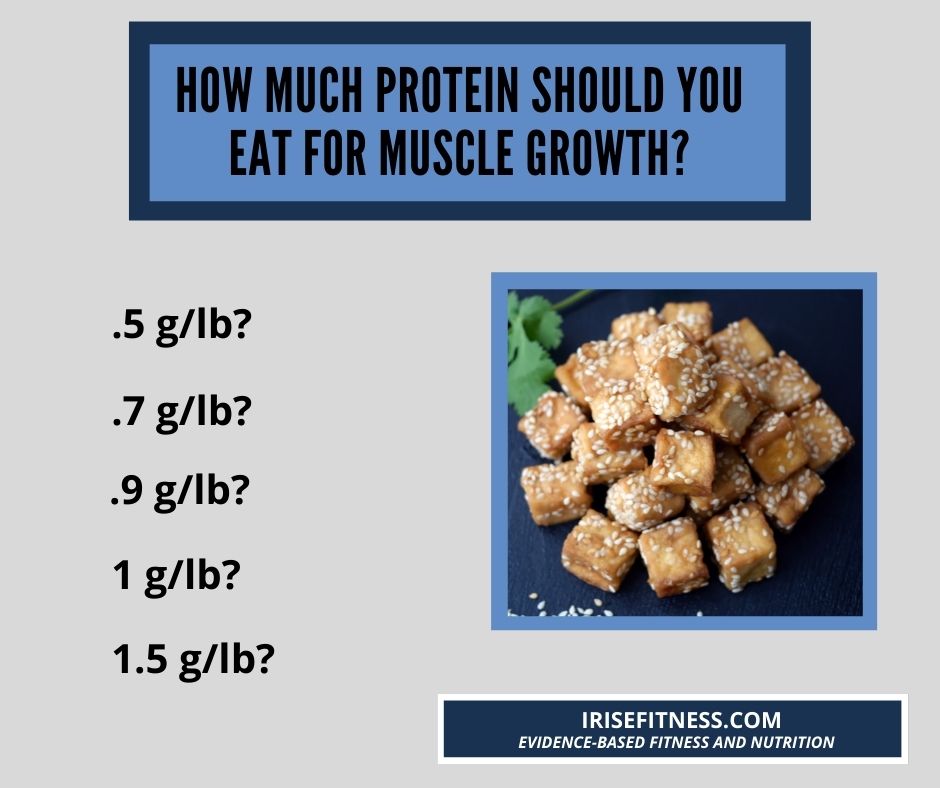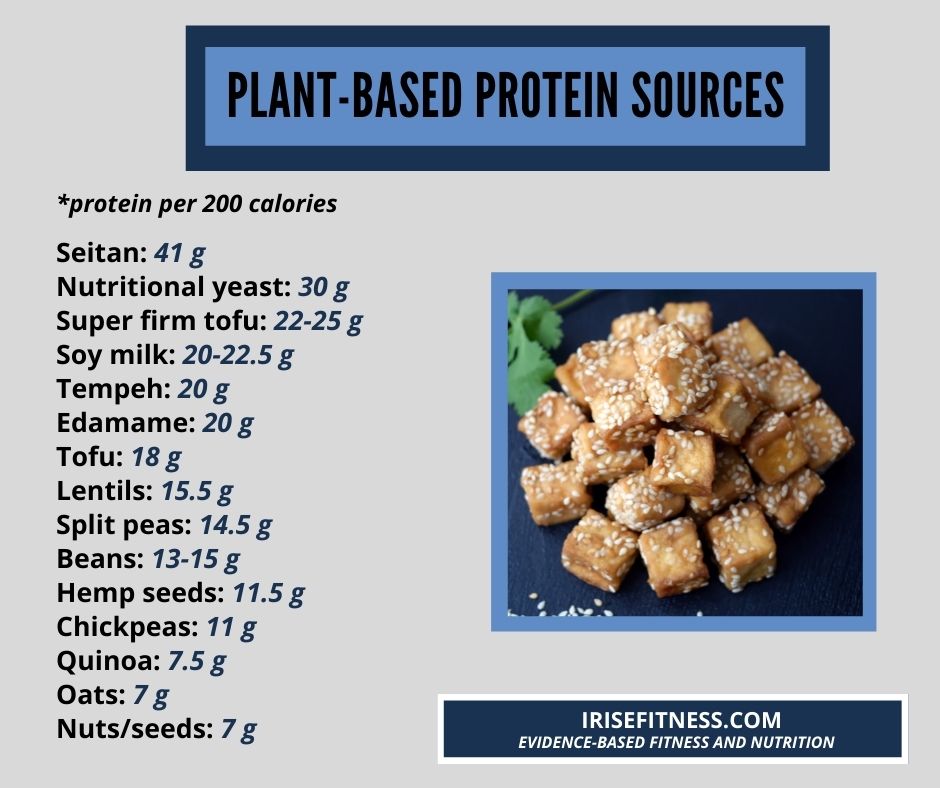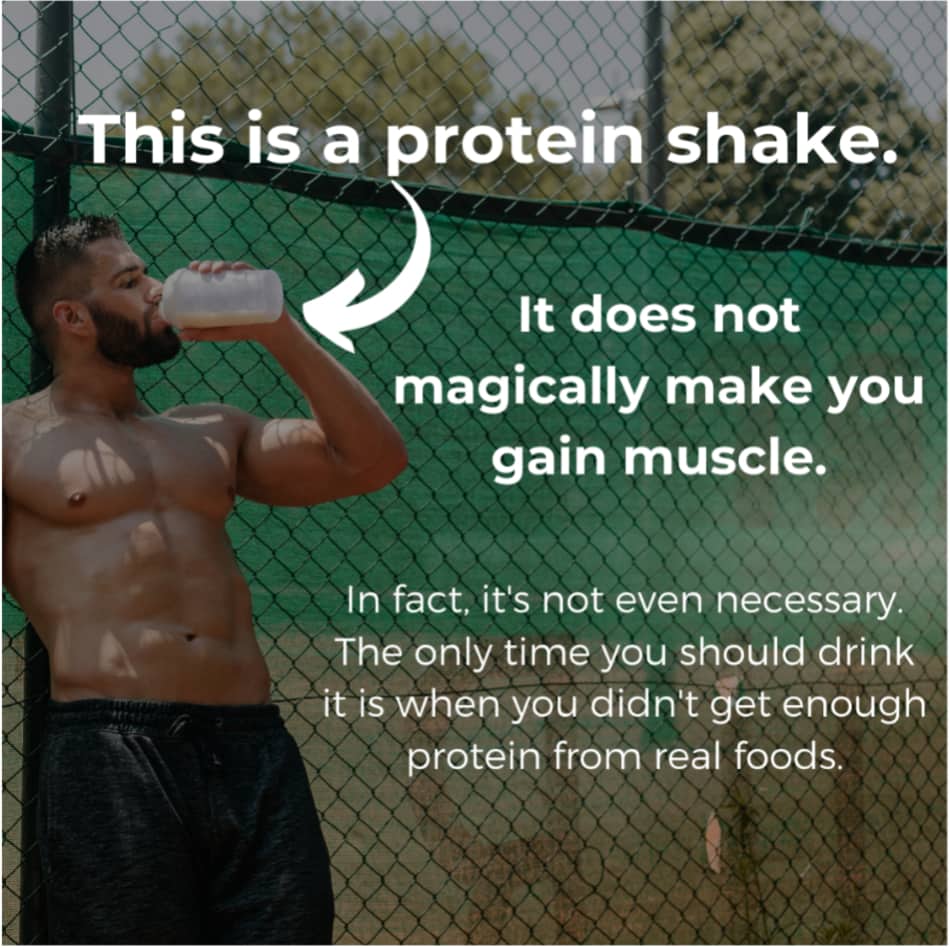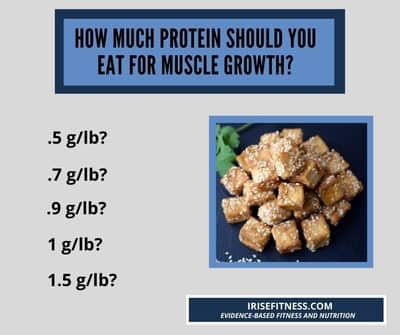
Protein consumption is one of the most talked about topics in the fitness community, yet many people have no idea what the research actually shows about protein consumption and muscle growth.
Most people have heard the saying “eat one gram of protein per pound of body weight.” I’ll tell you right now, that’s more protein than you need to be eating and in fact, if you are eating that much or more, you are probably not taking advantage of other macronutrients that could be helping you achieve your goals.
In this article, I will talk about how much protein you should be eating to ensure you are eating in a way that optimizes muscle growth outside the gym.
What Is Protein And Why Is It Important?
Protein is a macronutrient that is made up of different amino acids, some of which your body makes on its own, and others are essential that you need to get from the foods you eat.
While protein serves many different vital functions within the human body, most people know that protein allows us to build back muscle after a workout.
During a working out, your muscle “breaks down,” so protein is required to repair the damage and build new muscle tissue.
This is why you will hear people talk about eating protein after a workout.
But…
How Much Protein Do You Need To Eat?
This study took 30 resistance-trained individuals and divided them into two groups:
- Group one consumed 1.8 grams of protein per kilogram of bodyweight (.82 g/lb) while resistance training
- Group two consumed 4.4 grams of protein per kilogram of bodyweight (2 g/lb) while resistance training
Overall, the high protein group consumed an average of 307 grams of protein each day, compared to 138 for the control group.
Despite the high protein group eating 5.5 times the recommended daily allowance of protein, in addition to more calories compared to the control group, after 8 weeks, the study concluded that the difference in protein did not have any effect on body composition.
Considering that this 2014 study did not include a specific heavy-resistance training program (but rather, just asked participants to continue their own work outs), this 2015 follow up study did include a heavy-resistance training program.
Group 1 consumed 2.3 grams of protein per kilogram of bodyweight (1.05 g/lb) and group 2 consumed 3.4 grams of protein per kilogram of bodyweight (1.55 g/lb).
This study found that there were no differences between the two groups for any of the body composition variables that were tested.
Other experts from research suggests that protein recommendations for endurance athletes are 1.2 to 1.4 g/kg body weight per day, whereas those for resistance and strength-trained athletes are 1.6 to 1.7 g/kg body weight per day.

My Recommendation for Protein Intake
If you are lifting weights and want to maximize muscle growth, in general, research shows that you should aim for at least 1.6 grams per kilogram of body weight or .72 grams per pound of body weight.
For example, a 150 pound person would try to eat at least 109 grams of protein each day.
That being said, for elite athletes, research shows that you are in a caloric deficit, you might benefit from 1.6 up to 2.2 g/kg, suggesting a slightly higher protein intake might be needed for high level athletes.
And in general, the research does seem to suggest that when you are in a caloric deficit, your protein requirements are higher, which makes sense logically because your body is not able to maintain its muscle as easily when your body is using more energy per day than it is getting through food.
So as a rule of thumb, if you are eating at maintenance or in a caloric surplus and your goal is to maximize muscle growth, get at least .72 grams of protein per pound of body weight, and if you are in a caloric deficit, you will want to slightly increase your protein intake to anywhere between .72-1 g/lb.
I personally have been eating around .7 grams of protein per pound of body weight (that is around 125 grams per day) and I have been able to put on muscle and gain strength perfectly fine. So while that is not research and just my own experience, it does align with what the research shows.
Should You Drink Protein Shakes?

I feel like I need to answer this question because it’s a question I get all the time.
There’s nothing magical about protein shakes – it’s just protein.
Use them if you’re having trouble hitting your protein goals from real food. Don’t use them if you get enough protein from real food.
It’s that simple!
I personally use a protein powder because it’s convenient and helps me reach my daily protein intake.
Two Common Misconceptions
I want to touch on two common misconceptions about protein.
For one, you don’t need to “eat protein as soon as you finish working out.” Yes, it is a good idea to fuel your body before or after a workout, but it’s not like you’ll lose all your “gains” if you don’t drink a protein shake within 35 seconds after you workout – despite what you’ve been told, it doesn’t work like that.
Second, in terms of spacing your protein intake evenly throughout the day vs all in one meal, you don’t need to focus on this. Don’t worry about “eating four to five meals per day with x amount of protein in each meal.” At the end of the day, what matters most is total protein intake. So as long as you are hitting your totally daily protein goals, you’ll be fine.
Conclusion
There are so many misconceptions about protein and how much we need to eat to optimize muscle growth.
As a general rule of thumb, my recommendation, which is based on the research, is that if you are not actively trying to lose weight, eating .72 grams of protein per pound of bodyweight is sufficient.
If you are actively trying to lose weight, increasing your protein between .72-1 gram per pound of bodyweight is likely optimal.
In general, people tend to focus on protein way too much. Believe me, I did too.
But then when I looked into the research on protein and muscle growth, in addition to implementing what I had learned into my own life and saw it worked, I realized I didn’t need to focus on protein nearly as much as I thought.
For reference, I have been able to put on plenty of muscle the past few years and I weigh around 180lbs and I tend to eat around 125-130 grams of protein on a daily basis (.7 grams of protein per pound of bodyweight).
I hope you learned something new from this article – many people often overemphasize the importance of protein. Focus on getting at least .72 grams of protein per pound of bodyweight and fill up the rest of your food with carbs and fats.
In the next article, I am going to discuss where you should be getting your protein from – specifically animal vs plant protein and common misconceptions between the two different types.

